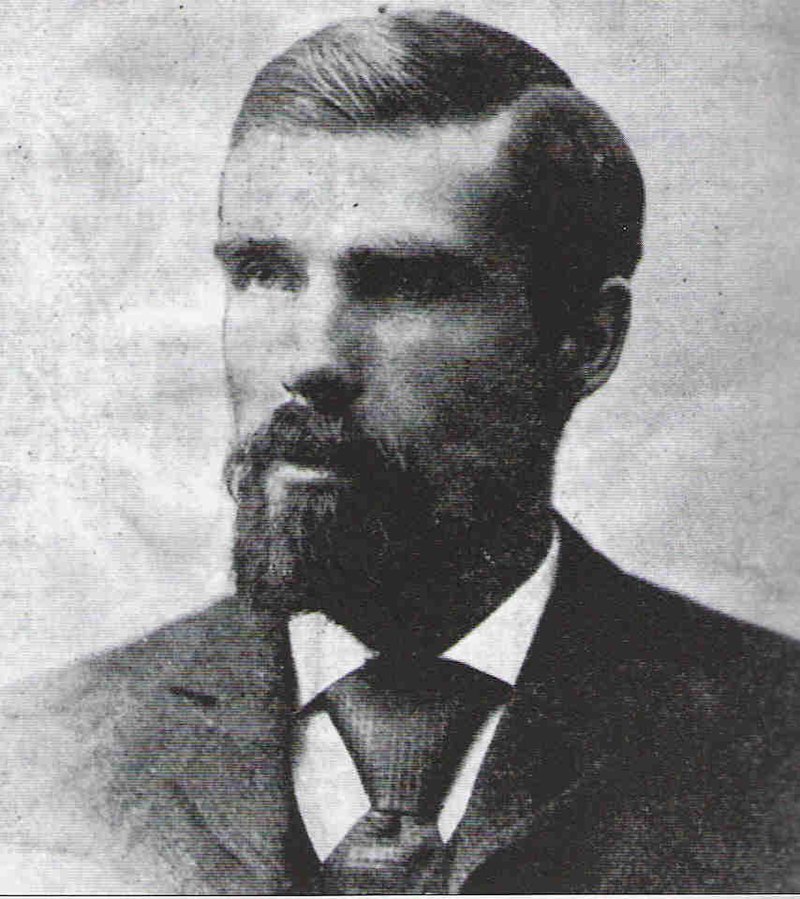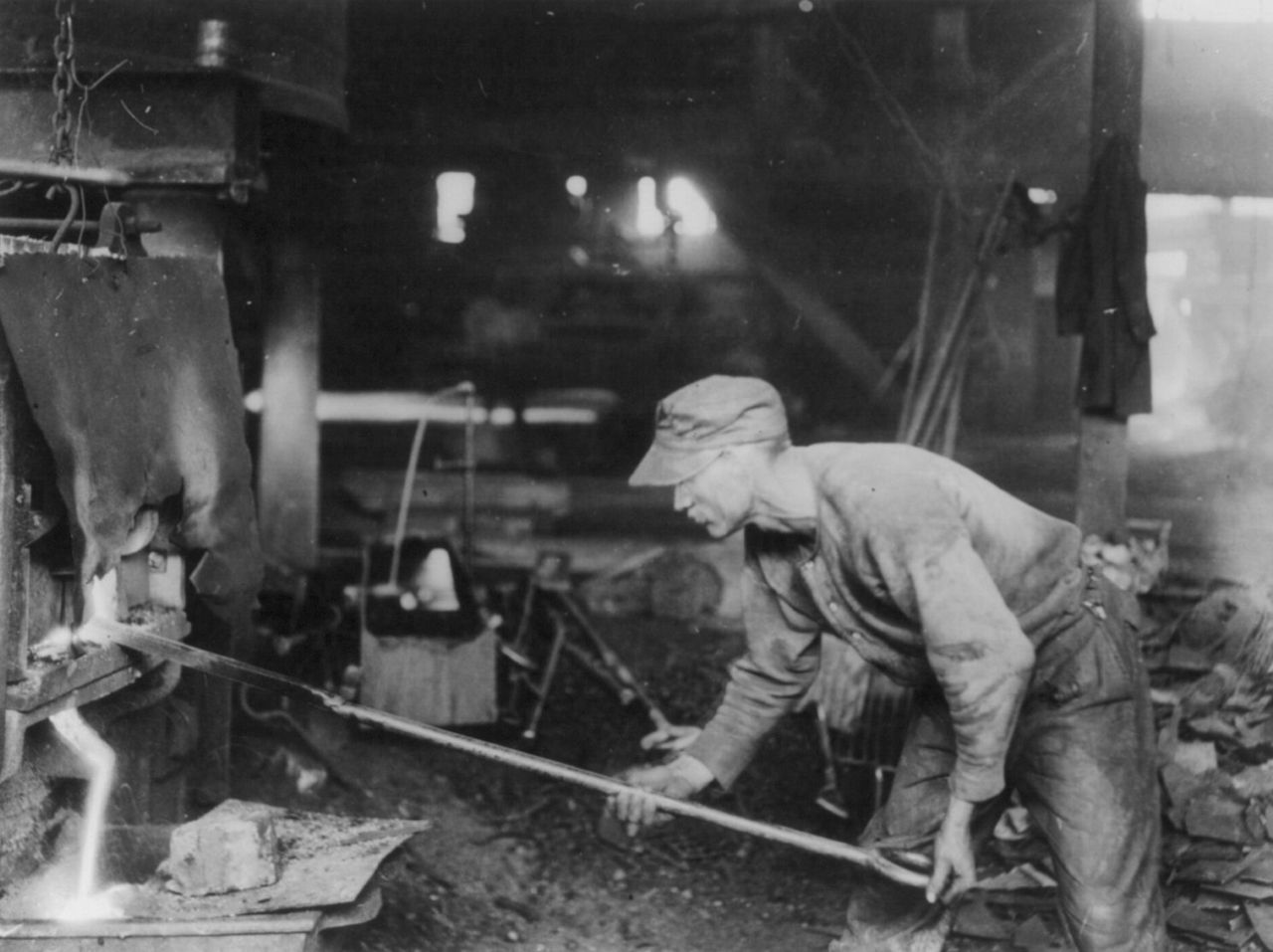
Michael McGovern was born in the townland of Castlefield, near Williamstown, County Galway to John Govern and Bridget Flynn in October 1847. We don’t know a lot about his early life. We know that he was educated at a Hedge School. As educating Irish children was often not permitted, secret schools were organized by itinerant teachers. These schools were usually held outdoors among the hedges; hence they were known as Hedge Schools.
McGovern received an education in the basics, including Latin. He also learned Irish history by the fireside listening to the older generation tell stories of old Ireland and its fight for freedom. McGovern was apprenticed to a shoemaker for a time, but he soon found the trade was not to his liking. McGovern sailed for England in 1866, where he was able to find employment in Sheffield as a steel mill laborer. In Sheffield, he also met and married his wife, Anne Murphy, in 1872.
McGovern joined the secret Irish Republican Brotherhood (I.R.B.) while there. In 1880, McGovern had to flee England as his activity with the I.R.B. had been discovered. He was smuggled into the U.S. to escape capture by British authorities. He soon was able to send for his wife to join him. His history in the U.S. picks up about 1882 when he obtained work as a “puddler” at the Catasauqua Steel and Iron Company near what is now Fullerton, in eastern Pennsylvania.

What is a puddler? Along with “breaker boy” and “gandy dancer,” it is one of those occupations that no longer exist. Puddling was a method of turning pig iron into wrought iron. The puddler’s job was to stir the molten metal in a furnace with an iron bar and then gather it at the end of a rod while the molten metal thickened. As you might expect, the labor was strenuous and extremely dangerous. The intense heat and fumes caused puddlers to have a very short life expectancy.
McGovern left the mill in Pennsylvania about 1888-1890 and then moved his family to Youngstown, Ohio, where he worked as a puddler in the old “Siberia Mill” of the Cartwright-McCurdy plant. But, McGovern had other interests during his tenure making iron.
During his downtime, McGovern would write poems about his work at the mill. As a member of the Amalgamated Association of Iron, Steel, and Tin Workers, McGovern was a staunch defender of labor. He wrote about labor’s struggle against management and the importance of labor unions. He wrote about Ireland and Irish history, as well. McGovern referred to himself as “The Puddler Poet.”
Of course, he did not leave behind his love of Ireland. He continued his involvement with the Irish Republican Brotherhood in the U.S. It is believed that he was a member of Clann na Gael. Many of his poems were published in the Gaelic American, John Devoy’s newspaper. His poems were also published in the Youngstown Vindicator and The Telegram.
McGovern’s poems fall into three categories: rolling mill rhymes, labor and miscellaneous poems, and amorous verses “to show that a rolling mill man has a heart as susceptible to the purest motives of love as those who have millions wherewith to purchase a title.”
McGovern was also a very active member of the Ancient Order of Hibernians in Youngstown. According to James Fahy, “From an A.O.H. point of view McGovern was deeply involved in the work of the Ancient Order and was – in a sense – Ohio’s – A.O.H. Poet Laureate.”
He wrote a poem, Welcome A.O.H. Men, which may have been a greeting to those attending an A.O.H. function in Youngstown. In it he wrote:
For Ireland’s triumphs and her woes:
For virtues that enhance her glory;
For wrongs inflicted by her foes
That go to make the blackest story.
For love of Freedom, – always her’s;
Which love, may yet its crown accord her
Céad Mile fáilte –Visitors –
True members of her Ancient Order.
In 1899 the Vindicator Press published a book of his poems titled Labor Lyrics. In the introduction, McGovern wrote, “Puddlers are a boastful class of workmen. I therefore, in keeping with their dignified practice, make the boast that I consider myself the only puddler that ever stood ‘top of the earth’ who had the daring to issue a volume of poems.”
During a strike at the Youngstown mill, McGovern decided to leave the iron industry, and he took a job with the State of Ohio as an oil inspector. He eventually retired.
Thanks to the publication of his poems, McGovern became known nationally as a poet of the labor movement. But, that was not his only talent; he apparently was also an artist. He never had any artistic training but managed to produce many paintings.
In 1904 he returned to Ireland for the first time since his departure. He reportedly came back a little disappointed. “All they did was have parties for me,” he said, “I didn’t get a chance to see the country.”
McGovern continued to write poems right up until his death of a heart attack at age 86 on April 2, 1933, leaving behind a large number of unpublished poems. McGovern was survived by his wife Anne, and four children. He had 21 grandchildren and 2 great-grandchildren. His wife passed away just a few years later in 1935.
THIS IRISH AMERICAN HERITAGE MONTH PROFILE IS PRESENTED BY THE ANCIENT ORDER OF HIBERNIANS (AOH.COM)
#IrishAmericanHeritageMonth